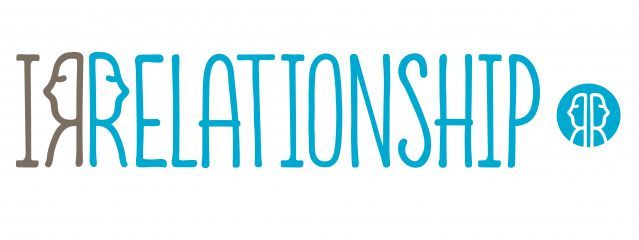
Are you doing what really matters to you?
And all I ever want
Is just a little love
I said in purrs under the palms
And all I ever want is breaking me apart
I said to the thing that I once was—
We live in a culture of irrelationship(link is external)—a culture in which using one another to maintain distance from close relationships is typical. We protect ourselves from what we most desire and most fear: closeness to one another. The Culture of Irrelationshipis a bleary, blurry, shared space in which personhood itself is marginalized and devalued.
Mind Off-Line
Twitching like puppets in irrelationship song-and-dance routines, our conscious minds off-line and brainlocked(link is external), we can’t recognize even our own human needs. Instead we opt for more trendy, ego-gratifying platitudes about “independence” and “self-sufficiency.” But the ever-proliferating brands of self-help do little to address our losing sight of any idea of connection with others. Clearly something else (link is external)is needed.
Irrelationship lets us plunge into the so-called pursuit of happiness (Grant, 2013; Mausse et al., 2014) without the risk of having our hearts broken. We try to satisfy ourselves with safe substitutes for romance and for other personal connections. Almost inevitably, the outcome is that we begin treating others as a disposable—or, at best, a deliverable—both in romance and in our work lives.
Anxiety connected to our jobs uses up a lot of time and energy even when we’re not actually at work. As a result, most of us don’t take much time to think about what we really want and need for ourselves. This stress makes our work so taxing that it spills over into feeling that we’re not paid enough, but fear of being replaced keeps us from saying anything.
The backstory to this scenario often looks something like this: Pressure from parents to “do well” drives you to excel in school and extracurriculars and to check the boxes that indicate the “right” interests. You go along with family expectations without a second thought about what your real interests are. Instead, you create a false self and get sucked deeper and deeper into roles and activities that have nothing to do with what you actually care about down deep. You hate how this makes you feel, so you focus on how you’re doing “the responsible thing” to sidestep those negative feelings. Meanwhile, you’ve involved your life with someone who comes from the “right kind of family” who, oddly, is also ultimately treated as disposable: you deliberately don’t share anything with one another that’s actually important to you. And in a strange way, it works.
Then Suddenly It Hits You…
After years or decades, you may begin to realize that your life has passed you by. You’re living somebody else’s dreams and demands: nothing that your life is made of has anything to do with what really matters to you. And the people you’re supposedly closest to don’t have any idea who you really are or what you really care about. You yourself may not find it easy to remember what matters to you.
Or, perhaps worse, you may not begin to realize it at all though you live with a vague sense that something isn’t right and hasn’t been right for a long time.
These dynamics are how irrelationship works. Being “checked out” keeps our anxiety and all our other feelings below the radar, but it also stands directly in the way of living a real life and taking risks worth taking. It’s sort of like Rip Van Winkle, who, after drinking enchanted liquor, falls into a sleep lasting for decades. When he awakens, he finds that everyone and everything he knew or cared about had gone its way, leaving him exactly where he was when he fell asleep. For those of us who have invested our lives in someone else’s demands, irrelationship becomes the enchanted liquor that allowed us to remain “safe” in a self-imposed sleep-walk.
Wake Up Sleepyhead, It’s Time For School!
It’s never too late to listen to the wake-up call to stop treating your life and other people as disposables. You can recreate your life along a path that’s meaningful to you. A vital part of this step is to avoid hammering yourself with recriminations that you’ve wasted your life. More healthy and more useful is to feel gratitude for your Discovery(link is external), and enjoy the prospect and path of a new life—your life.
References
Grant, A. (2013). Does trying to be happy make us unhappy?(link is external) Huffington Post, 5/15/2013.
Mauss, I. B., Savino, N. S., Anderson, C. L., Weisbuch, M. Tamir, M.. Laudenslager, M. L. (2012). The pursuit of happiness can be lonely. Emotion, 12 (5), 908-912.
Visit our website: http://www.irrelationship.com(link is external)
Follow us on twitter:
Like us on Facebook: www.fb.com/irrelationship(link is external)



















